Introducing Gramitherm, climate-conscious insulation made from locally sourced grass and recycled materials
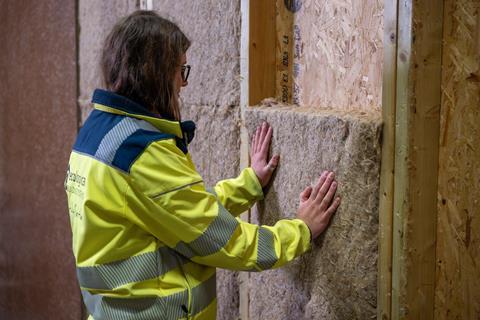
Ecological Building Systems, a supplier of natural building products, has introduced grass insulation to the UK and Ireland.
Gramitherm is said to be the first insulation produced from grass. The material is sourced from public parks and grass verges within 300km of the manufacturer before being combined with recycled jute fibres and a recycled polyester binder.
Containing more than 90% bio-based content, the production process utilises heat from biogas, a by-product of grass fermentation, for drying.
The product has secured European Technical Approval and an Environmental Product Declaration (EPD), demonstrating that 1kg of Gramitherm sequesters 1.5kg of CO2, equivalent post-production. It has also achieved A+ ratings in volatile organic compounds emission tests.
According to the manufacturer, Gramitherm’s properties include:
- Resistance to mould due to its natural hygroscopic properties, which help to regulate humidity within the building envelope and enhance breathability
- Versatile, it can be installed in rafters, joists, walls, ceilings and floors
- Flexible and rigid, ensuring a snug fit without settlement
- High density of 40 kg/m3 due to the unique fibrous structure of grass
- A thermal conductivity of 0.041 W/mK and high heat storage capacity, keeping buildings warm in winter and cool in summer
- Excellent acoustic properties, absorbing 99% of sounds at 1000 hertz, reducing noise transmission.
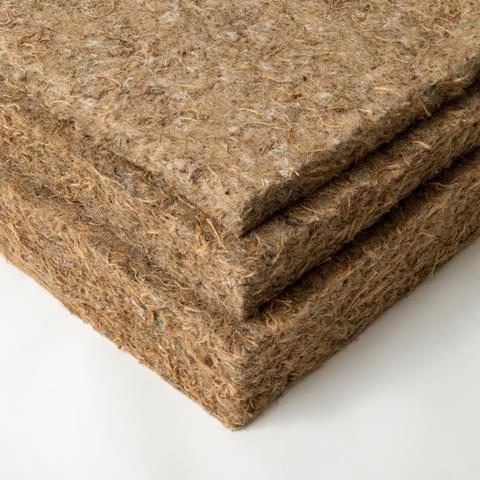
When asked about the product’s fire performance, Neil Turner, technical sales manager at Ecological Building Systems, said: ”Gramitherm has not been given a Euro Fire Class E rating but has been tested to the criteria for achieving a Euro Fire Class E Reaction to Fire rating according to EN13501-1. […] An additional test must be performed to achieve a Euro Fire Class B, C or D rating (Single Burning Item Test: EN13823). Many manufacturers don’t perform these additional tests unless there is a specific requirement to make a Euro Classification better than E.
Turner continued: ”Where natural insulations perform very well is fire resistance when tested in a full building system. Natural fibre insulation products char on exposure to flame. This surface char protects the structure and slows down the penetration of heat and flame through the structure. According to a study performed by the University of Central Lancashire, natural insulations produce less toxic smoke when exposed to flame compared to certain other insulations.”

Postscript


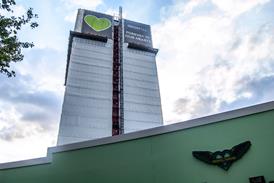

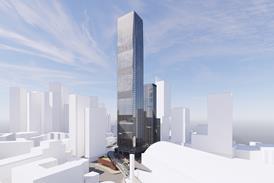
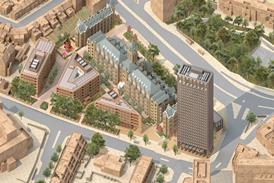










No comments yet